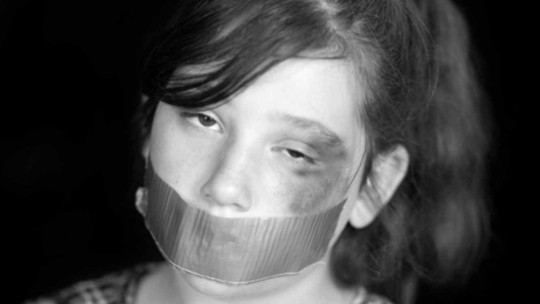
A positive family environment provides stability, security, inner joy, belonging, resilience and roots. In short, it offers the desired protection from an emotional point of view.
However, human beings can also feel deeply vulnerable when living with other close loved ones. Vicarious violence is one of the forms of manipulation and blackmail that can occur in the family nucleus It is a type of damage that has a great impact on the couple and children.
On the other hand, the abuser may continue to exercise some type of control after divorce or separation: it limits the woman’s personal freedom and negatively interferes with her ability to make decisions. Ultimately, he wants to prevent her from creating and advancing in her own life project. Aggression intensifies in specific situations that are beyond the control of the aggressor. For example, when she falls in love with another person and begins a new romantic relationship.
How to identify a case of vicarious violence: main warning signs
When there is any type of violence in the relationship, children suffer the damage that this situation generates in the long term. There is a climate of tension, negativity and concern in daily coexistence. But vicarious violence has a special impact on them for a very specific reason. Apparently, the aggressor’s actions are directed at minors Although it is important to analyze the situation in depth: their true intention is to harm the mother.
For this reason, this intentional and deliberate damage also receives another name: it is possible to use the term violence by substitution to refer to those patterns of behavior that are usually repeated in this context.
1. Blackmail, aggression and manipulation
Children become a bond that unites couples even after the romantic relationship has ended In that case, the love story ends because one of the parties has made that decision and communicated it clearly. And what happens when her wish is not accepted by someone who refuses to leave that stage of her life behind? Gender violence can manifest itself in this context through vicarious violence. In this case, blackmail, aggressiveness, authoritarianism or manipulation directly impact the child.
Consequently, they are negative actions that produce enormous wear and tear on the mother who experiences contradictions and difficulties in her daily life. She wants to protect her children and make them completely happy. However, on numerous occasions she feels responsible for matters that do not depend on her. She may not be aware that she is a victim of what is happening in her present and the harm she is unfairly suffering.
2. The aggressor acts differently towards other people
Vicarious violence also presents another common contradiction in society. The behavior that the aggressor maintains with the family can distance itself from the image that the aggressor shows to other neighbors, friends or co-workers. It is common for other people to perceive you as someone kind and polite That is, it is possible that he appears as a responsible, committed and involved father.
In short, it is a type of domestic violence that frequently goes unnoticed by those closest to us. Vicarious violence causes a notable impact on the victim’s self-esteem, quality of life and health.
3. The aggressor instrumentalizes the relationship he has with his children
The bond that the aggressor establishes with his children is not based on care, acceptance, protection and unconditional love. In fact, it does not take into account the rights, interests and emotional needs of minors during the growth process. In conclusion, instrumentalizes them as if they were objects that lack sensitivity, emotions, feelings and freedom That is, the aggressor uses this means to hurt the mother even in those moments in which he does not establish direct, face-to-face contact with her. Consequently, it is a form of gender violence that has a great scope beyond the breakup.
4. The level of conflict increases
Keep in mind that permanent conflict is established in daily routine because the aggressor himself generates it, feeds it and enhances it. Does not establish a positive link. On the contrary, uses fear to feed dependency, constant worry, weakness and submission. Psychological violence is very present in this context.
Therefore, vicarious violence is a form of aggression that directly impacts the mother, children and society.








